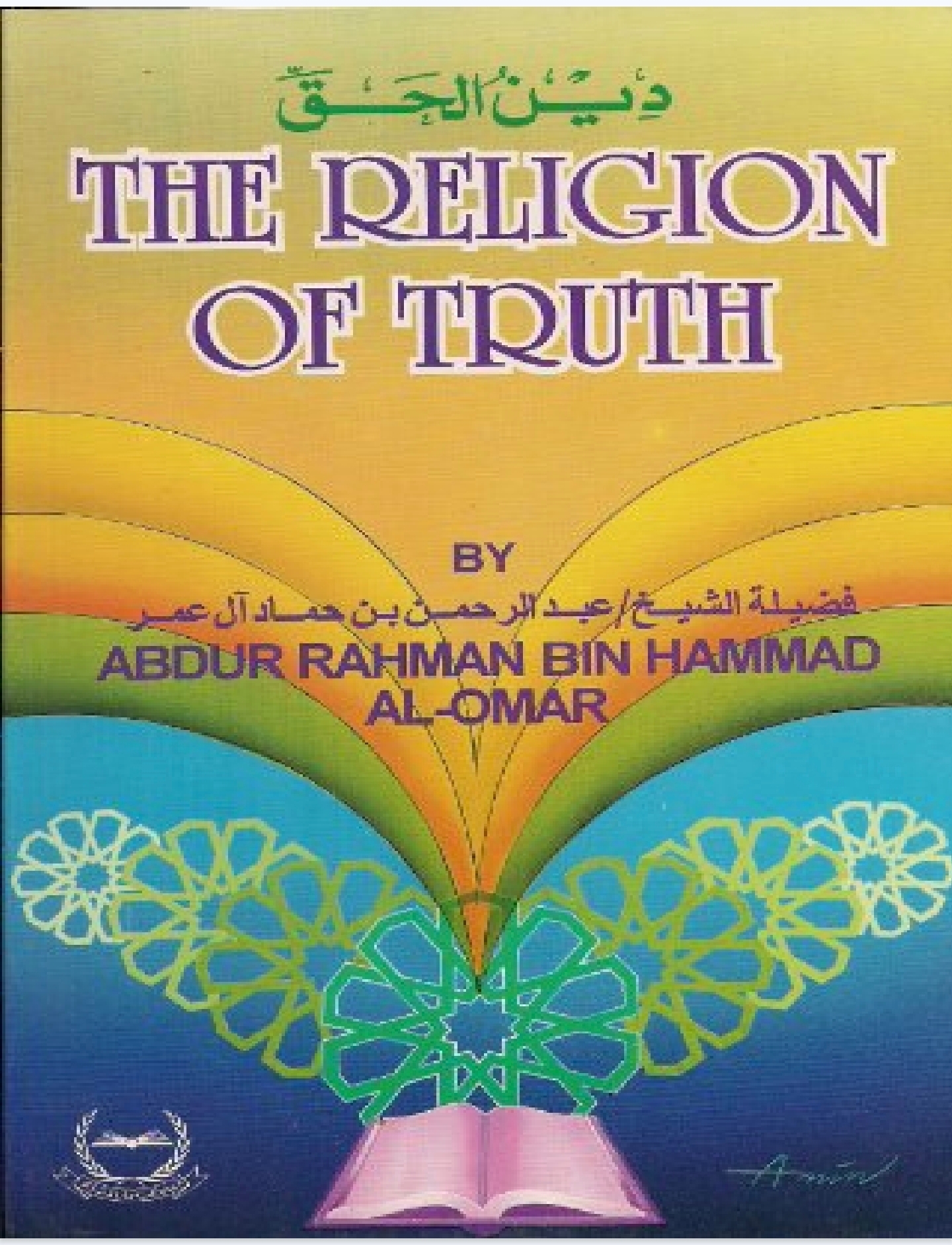Hub For Your Daily Islamic Insights 🕋 🕌

The Religion of Truth, A comprehensive guide to faith and understanding Islam.
A comprehensive guide to faith and understanding Islam.
Free
Discover profound wisdom and spiritual guidance with 'The Religion of Truth' by Abdur Rahman Bin Hammad Al-Omar. This thoughtful book delves into the core principles of faith, offering clear insights and practical advice for those eager to deepen their understanding of religion. Featuring vibrant cover art that captures attention, it is a must-have for both new seekers and seasoned readers. Perfectly sized for easy reading at home or on the go, this book is an ideal addition to any personal library. Unlock the path to greater knowledge and enlightenment—get your copy today!
### The Religion of Truth: A Comprehensive Guide to Faith and Understanding Islam #### Introduction Islam, often termed the "Religion of Truth," encompasses a profound spiritual, ethical, and social framework that guides the lives of over a billion adherents worldwide. This guide aims to provide an overview of the essential tenets of Islam, its historical context, and the ways it fosters peace, understanding, and harmony in diverse societies. #### Chapter 1: The Foundations of Islam 1. **The Meaning of Islam** The word "Islam" derives from the Arabic root "s-l-m," which signifies peace and submission. Thus, to be a Muslim means to submit to the will of God (Allah) in pursuit of peace. 2. **The Five Pillars of Islam** The framework of a Muslim’s faith and practice is embodied in the Five Pillars: - **Shahada** (Faith): The declaration of faith, bearing witness that there is no god but Allah and Muhammad is His messenger. - **Salah** (Prayer): The performance of ritual prayers five times a day, which establishes a direct connection with God. - **Zakat** (Charity): Giving to those in need, which purifies wealth and serves as a means to redistribute resources in society. - **Sawm** (Fasting): Observing fasting during the month of Ramadan, which promotes self-discipline and empathy for the less fortunate. - **Hajj** (Pilgrimage): Undertaking the pilgrimage to Mecca at least once in a lifetime, provided one has the means, symbolizes unity and equality among Muslims. #### Chapter 2: The Sacred Texts 1. **The Quran** The Quran is considered the literal word of God as revealed to Prophet Muhammad over 23 years. It addresses all aspects of life and serves as a comprehensive guide for personal conduct, societal norms, and spiritual growth. 2. **Hadith** These are the recorded sayings and actions of the Prophet Muhammad, providing context and elaboration on the teachings of the Quran. Together with the Quran, the Hadith forms the basis of Islamic jurisprudence and ethics. #### Chapter 3: The Prophets of Islam Muslims believe in a succession of prophets, reaching a culmination in the final prophet, Muhammad. - **Adam**: The first human and prophet, regarded as a model for humanity. - **Noah**: Warned his people of impending punishment for their wrongdoings. - **Abraham**: A key figure in monotheism, revered for his unwavering faith. - **Moses**: Led the Israelites out of Egypt, demanding adherence to God's commandments. - **Jesus**: Regarded as a prophet in Islam, emphasizing his teachings and miraculous birth. Each of these prophets contributed to the unfolding revelation of God's will, culminating in Islam's final scripture through Muhammad. #### Chapter 4: Core Beliefs 1. **Belief in One God (Tawhid)** The oneness of God is a foundational concept in Islam, emphasizing that God is unique, indivisible, and transcendent. Tawhid rejects any form of polytheism or division of His essence. 2. **Angels** Belief in angels as created beings who serve various functions, including conveying God's messages, recording human deeds, and executing divine commands. 3. **Divine Books** Muslims believe in previous revelations such as the Torah and the Gospel but view the Quran as the final and unaltered word of God. 4. **Prophets** Acknowledgment that God sent messengers to guide humanity throughout history, culminating in Muhammad. 5. **Day of Judgment** The belief that all individuals will be resurrected and judged based on their faith and deeds, leading to eternal reward or punishment. 6. **Predestination (Qadar)** Acceptance that everything happens by divine will, while humans possess free will to choose their actions. #### Chapter 5: Islamic Practice and Ethics 1. **Personal Conduct** Islam emphasizes integrity, honesty, compassion, and justice. Personal conduct reflects one's faith, with an emphasis on respect towards parents, neighbors, and the community. 2. **Social Justice** The principles of equality and justice are deeply ingrained in Islamic teachings, urging followers to work towards the betterment of society and to combat injustice and oppression. 3. **Community and Brotherhood** The ummah (community of believers) serves as a platform for mutual support, shared values, and collective responsibility towards the less fortunate. #### Chapter 6: Misconceptions and Common Questions 1. **Islam and Violence** A common misconception about Islam is its association with violence. However, numerous teachings advocate for peace, forgiveness, and coexistence. 2. **Women in Islam** Misunderstandings persist regarding women's rights in Islam. The Quran promotes dignity, equality, and protective rights for women, and interpretations can vary widely across cultures. 3. **Terrorism** Extremism is a distortion of Islamic teachings. The vast majority of Muslims reject terrorism, viewing it as contrary to the very principles of peace underscored in their faith. #### Conclusion Islam, as a Religion of Truth, conveys a holistic approach to life, emphasizing faith, morality, and social justice. Understanding the essence of Islam requires engaging with its core beliefs, practices, and the principles that guide the lives of its followers. By fostering a spirit of dialogue and respect, individuals can contribute to a greater understanding of Islam and its role in promoting peace, compassion, and unity in a diverse world.
